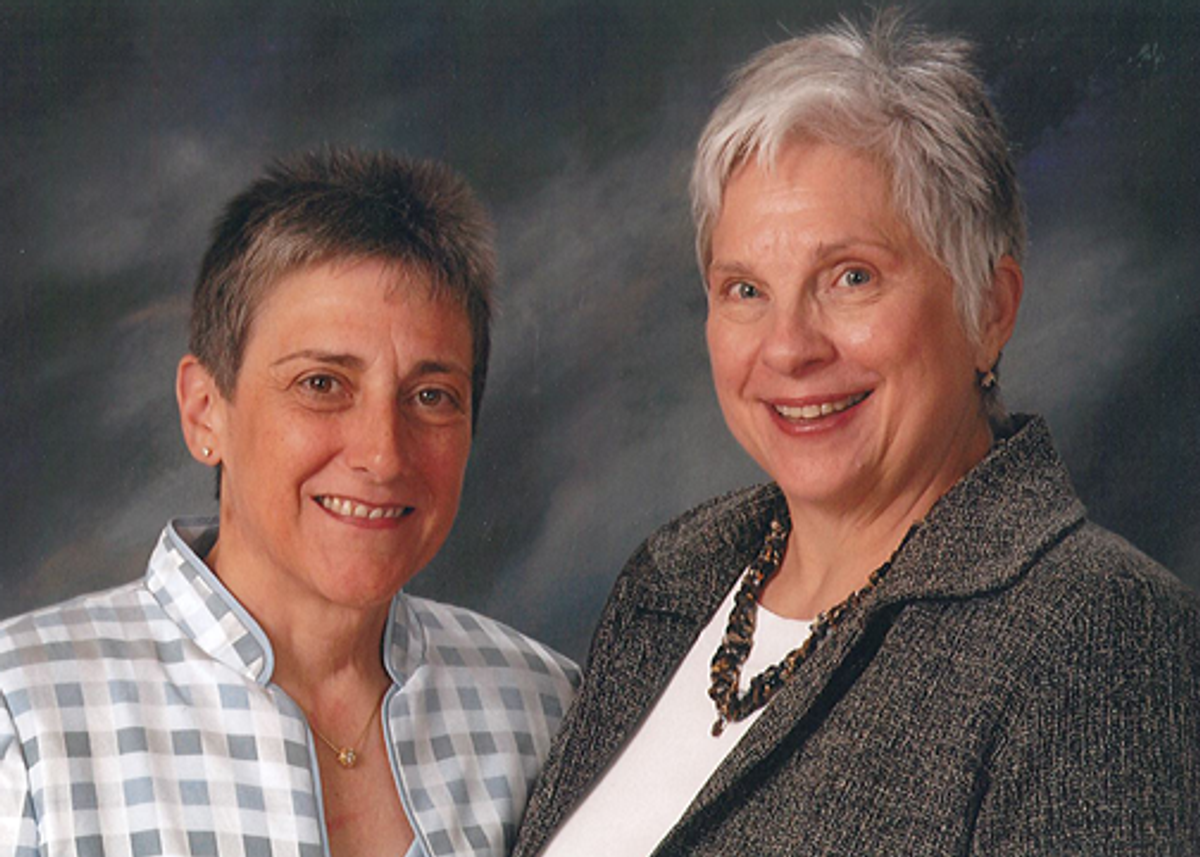A federal judge in Connecticut has ruled against the Defense of Marriage Act in a challenge brought by married same-sex couples.
Judge Vanessa Bryant, a George W. Bush appointee, ruled that the Section 3 of the 1996 law, which prohibits the federal government from recognizing same-sex marriages, violates equal protection guarantees. The suit, Pedersen et al v. Office of Personnel Management et al, was brought by six couples and one widower in Connecticut, New Hampshire and Vermont who were denied federal benefits because they were legally married to a spouse of the same sex.
In a striking opinion that exceeded 100 pages, Judge Bryant concluded that, "having considered the purported rational bases proffered by both BLAG and Congress and concluded that such objectives bear no rational relationship to Section 3 of DOMA as a legislative scheme, the Court finds that no conceivable rational basis exists for the provision. The provision therefore violates the equal protection principles incorporated in the Fifth Amendment to the United States Constitution."
Gay and Lesbian Advocates and Defenders is representing the plaintiffs, while the House Republican-controlled Bipartisan Legal Advisory Group (BLAG) has intervened to defend DOMA since the Obama administration announced it would no longer defend the law last year.
"Judge Bryant's ruling is very clear: married people are married and should be treated as such by the federal government. There is no legitimate basis for DOMA's broad disrespect of the marriages of same-sex couples," said Mary L. Bonauto, GLAD's Civil Rights Project Director, in a statement. "We are very pleased that the Court recognized that DOMA's creation of second-class marriages harms our clients who simply seek the same opportunities to care and provide for each other and for their children that other families enjoy."
Earlier this month, Judge Bryant cited the "public interest" in denying a request from BLAG to halt proceedings in the Pedersen case. The House Republicans argued that similar issues were under consideration in the case, Windsor v. United States. A federal judge in New York ruled DOMA unconstitutional in that case last month. Windsor is now on an expedited appeal schedule in the Second Circuit, and the plaintiff has also asked the Supreme Court to hear the case.
The Pedersen case, filed in November 2010, includes lead plaintiffs Joanne Pedersen and her spouse, Ann Meitzen. Pedersen, a federal retiree, is not allowed to cover Meitzen on her health insurance, which results in her spouse having to use more than 50% of her Social Security benefits to pay for her own health care benefits.
The grandmothers celebrated what the decision could mean for their lives and other same-sex couples during a conference call with reporters.
"I'm on cloud nine. I'm thrilled with the decision," said Pedersen. "I'm looking forward to the next step, but for right now, I'm on top of the world."
"It really took me surprise," said Meitzen about learning of the ruling. "The possibility that this can make such a change for all of us who are affected by DOMA is just unbelievable."
Bonauto said the case deals with the same "bread and butter issues" under review in Gill v. Office of Personnel Management. A federal appeals court in Boston ruled DOMA unconstitutional for the first time in Gill this past May, and both BLAG and the Department of Justice have filed petitions seeking Supreme Court review of that case. In total, one appellate court, five district courts, and one bankruptcy court have so far struck down DOMA on constitutional grounds.
While attorneys were still poring over the 104-page opinion from Bryant, Bonauto called the opinion "outstanding" in terms of its "big picture" and "granular" analysis. Bryant, a Queens, New York native, was the first African-American woman appointed a federal judge in New England.
Her opinion refutes point-by-point the arguments BLAG has used to argue that laws like DOMA which classify people based on sexual orientation should not be subjected to heightened scrutiny. In one part of the opinion, Bryant visits the issue of political power, where she rejects House Republicans' arguments that gay men and lesbians do not hold a minority status in the country.
"BLAG has failed to demonstrate that the alleged 'gay corporate power,' the ability of gay men and lesbians to raise money for advocacy, or the election of fair-minded candidates in 2008 has actually translated into an ability to imminently end discrimination, prejudice and to prevent unfavorable outcomes such as Proposition 8 or 'don't say gay' type legislation," she writes.
"This is a very hefty opinion," Bonauto told reporters on the conference call. "I have to say it was worth the wait on this one."
BLAG is expected to appeal the decision in the Second Circuit. Meanwhile, GLAD plans to respond next month to the Supreme Court petition filed by the Justice Department in Gill. The steps increase the strong possibility that the high court will rule on the constitutionality of DOMA next year, although it is impossible to predict which cases the justices will agree to hear.
"We're just going to be moving forward on multiple fronts," said Bonauto. "It's certainly not within our control what the Supreme Court is going to do. It certainly makes sense for us to continue moving forward to make sure Gill is fully briefed and in the meantime to proceed in the Second Circuit."


















































































Fans thirsting over Chris Colfer's sexy new muscles for Coachella